Mid-lockdown, a Scottish designer has launched a homeware and accessories brand that combines traditional craft processes from Scotland and India.
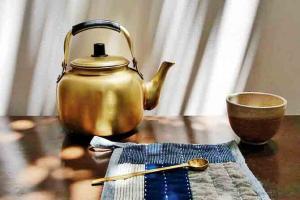
Sombu pot mat
Launching a brand during perhaps the most challenging time of the decade isn't the easiest thing to do, and it certainly wasn't a conscious decision for Catriona Maciver either. The Scottish designer had been working on Studio Tolsta, her collection of homeware and accessories, for eight years and it all came together right as the lockdown was announced. "On one hand, quilts and bags seem pretty irrelevant right now, but on the other, we are proud of the work we have been doing with craftspeople, workshops and NGOs. Now, more than ever, these vulnerable communities are facing enormous challenges, and we want to highlight and support these craft traditions and artisans as much as possible," Maciver says via email, referencing the ethos of her brand which combines traditional craft practises from Scotland and India.
ADVERTISEMENT
Before starting the design studio, Maciver, 34, worked as a graphic designer in the UK and Delhi, but always dreamt of starting her own company. In 2012, she moved to her ancestral village Tolsta in the Outer Hebrides (OH) of Scotland for some experimentation with ceramics, textiles and bags. In August 2013, she moved to Chennai for a residency with Tara Books, which gave her the opportunity to engage and interact with many different art forms and artists. Having met her husband on that residency, Chennai became home, too. The shift to India led her to think about merging practices from both countries to give the brand a new identity.
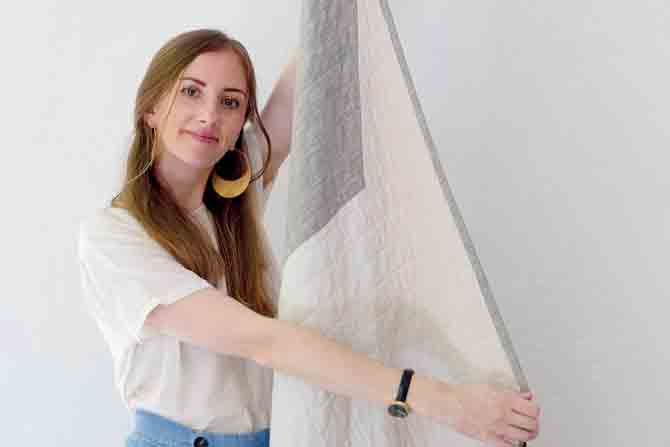
Catriona Maciver
On the website you'll find a range of bags, cushions, quilts and table tops — the price ranging from Rs 1,000 to Rs 22,400. In their collection of backpacks, Maciver introduces different shades of Harris Tweed paired with hand-woven denim made by a weaving unit in Tamil Nadu. The Scottish fabric can also be seen in their Takia cushions with patch-worked neutral kala cotton, "an indigenous, organic, drought-resistant strain", from Gujarat. Harris Tweed is unique to the OH and can only be woven there by islanders. "It is a testament to the resilience, resourcefulness, and self sufficiency of these remote rural communities. People would weave as well as fish or work on their land called 'crofts'. The fabric embodies the spirit of the place. You can see that the colour palette of the land is woven into it.
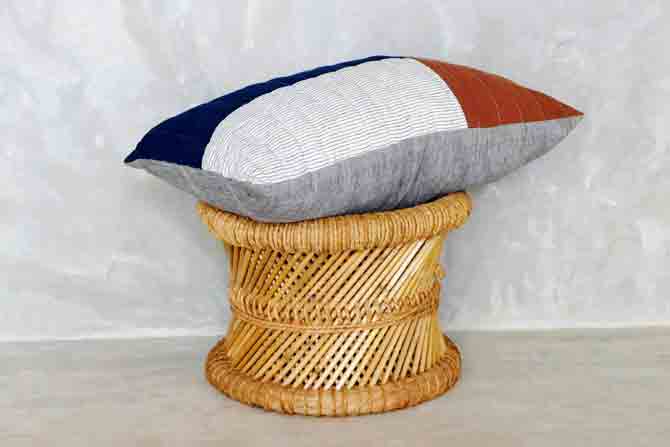
A quilted cushion made from naturally-dyed, handwoven cotton
Traditionally natural dyes were used and now although synthetic dyes are included, there is still a really strong link between the surroundings and the cloth," Maciver shares.
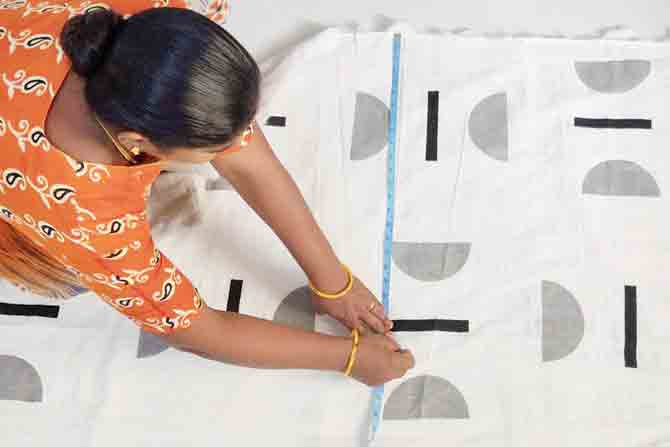
Along with collaborating with artisans from different Indian states, Studio Tolsta also makes quits at their production workshop in Chennai
The designer also informs us that Harris Tweed is the only fabric (in the United Kingdom) protected by its own act of Parliament, The Harris Tweed Act, 1993. "Over the years the industry has experienced several ups and downs, but its timeless quality, coupled with its durability and versatility means that it's been able to find a home on catwalks as well as on mountaintops [the early British mountaineers of the Indian Himalayas, for instance, wore it], and is now exported to more than 50 countries around the world," she adds. Maciver hopes to engage with artisans in the real world again, her biggest learning from this difficult phase being to stay as light and adaptable as possible.
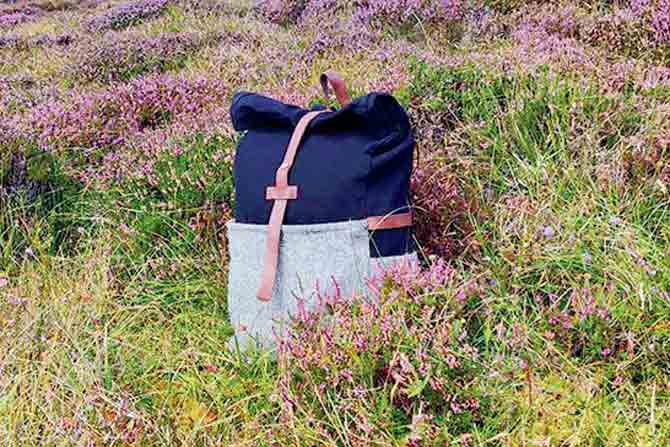
Cala backpack
Log on to studiotolsta.com
Catch up on all the latest Mumbai news, crime news, current affairs, and a complete guide from food to things to do and events across Mumbai. Also download the new mid-day Android and iOS apps to get latest updates.
Mid-Day is now on Telegram. Click here to join our channel (@middayinfomedialtd) and stay updated with the latest news
 Subscribe today by clicking the link and stay updated with the latest news!" Click here!
Subscribe today by clicking the link and stay updated with the latest news!" Click here!






